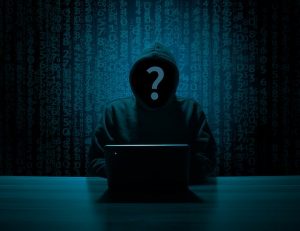Private investigators are increasingly facing new challenges, they must be able to adapt to the constantly changing and evolving of both law and technology, and fully ensure the tools and personnel equipment to face these changes. The advent of new technologies has led to new ways to commit crimes through digital media such as social networks, web pages, WhatsApp messages, e-mail, and more.
Anyone who commits this type of “technical” crime believes that the anonymity provided by the Internet has the advantage. However, this anonymity is not guaranteed. If you have the right tools and a qualified human team, you can face the so-called “cybercriminals”. Many people who have been affected by this type of crime are not well aware of how to respond or who they should go to, and in many cases, if they are not under the advice of a specialist, they tend to remove or manipulate digital evidence. The computer plays a role in proving that you are a victim of a crime.
The job of a private investigator [ theprivateinvestigator.sydney ] is to know how to properly manage this type of evidence to provide full validity in the judicial process.
What type of computer crimes are investigated by a private detective?
Private detective agencies must have a comprehensive team to respond to possible cases of technical or computer crime. Experts who can extract and analyze digital evidence manage custody to protect the integrity of the evidence, preventing them from challenging the judicial process.
 It may be if someone installed spyware on their mobile device or computer without the customer’s consent to view their emails, outgoing calls, WhatsApp conversations, etc. Perform the task of a private detective to detect the installation of this spyware and incorporate it into expert reports.
It may be if someone installed spyware on their mobile device or computer without the customer’s consent to view their emails, outgoing calls, WhatsApp conversations, etc. Perform the task of a private detective to detect the installation of this spyware and incorporate it into expert reports.
One of the most common cases is a situation where a client is harassed by a third party (whether a partner or not) via WhatsApp messages, phone calls, etc., especially in the matter of family or partners. It is the criminal responsibility to conduct a thorough analysis of mobile devices and extract possible digital evidence to verify the authenticity and authenticity of these messages and therefore can prove whether we are actually facing harassment.
If you are divorced or inaccurate, you can find out who one of the parties is talking to by installing a spy program or if the other party can control their movements. This type of behavior not only violates privacy or communication secrets but also is an obvious sign of harassment.
Similarly, threats, coercion, insults, or other aggression carried out through instant messaging conversations such as WhatsApp or telegram can be a crime.
However, computer crime occurs not only in the private sector but also in the business world. We may request criminal services to ensure that the company is using mobile terminals provided by employees for business purposes by employees for strict business purposes or for personal gain outside the company. In other cases, the company may suspect that one of the employees who need criminal service to analyze computers, e-mails, etc. is experiencing information leakage.
Classification of computer crimes
The website of the Australian Police Technical Investigation Brigade classifies computer crime data as follows:
- Attacks on privacy rights:
Secret discovery and disclosure offenses through the confiscation and proliferation of scheduled data recorded in computer files or media.
- Intellectual property infringement through copyright protection:
In particular, there are means to suppress unauthorized copying and distribution of computer programs and devices used to protect such programs.
- False:
A document concept as support for any data that represents or integrates data. Expand currency counterfeiting with debit and credit cards. Manufacturing or possession of computer programs for commissions of false offenses.
- Computer vandalism:
Damage offenses caused by the destruction or alteration of data, programs, or electronic documents contained in computer networks or systems.
- Computer scams:
Commit crimes through data manipulation or programs in order to gain illegal gain.
- Threats:
Designed as a means of communication.
- Slander and insults:
When spread ingenuity similar to printing or broadcasting.
Child pornography:
The induction, promotion, promotion, or promotion of prostitution during prostitution-related crimes when using minors or persons with disabilities for exposure or pornography purposes by minors or people who do not have the ability. The production, sale, distribution, and display of pornographic material in products that have been used by minors or incapacitated, even if the material has been started or unknown abroad. Promotion of the above actions (will facilitate production, sales, distribution, exhibition). Possession of the above substances for performing the above acts.
